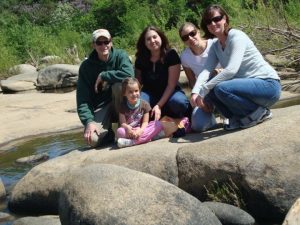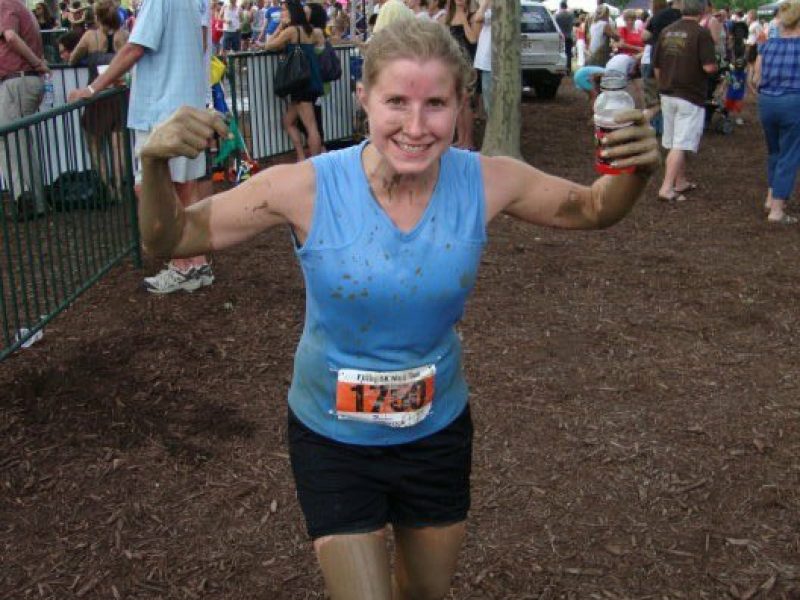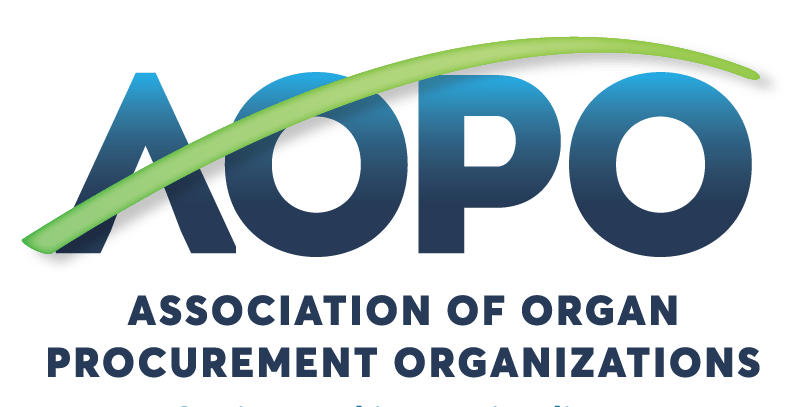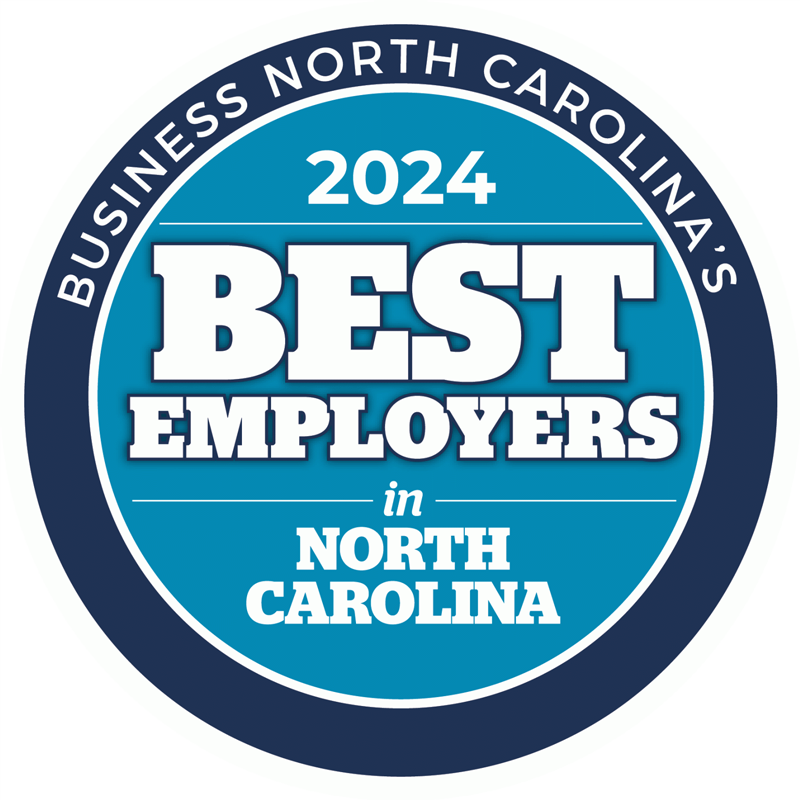Almost fifteen years ago, a devastating loss altered the course of Lindsay Faulk’s life. Now an In-House Donation Specialist for HonorBridge at New Hanover Regional Medical Center, Lindsay draws upon her personal loss and professional experience to guide donor families through the organ donation process.
This is her story.
In 2010, Lindsay and her older sister, Malinda, were both working as social workers for the same company in Richmond, Virginia.
“I was trying to move to a different position in my company in the same area that my sister’s office was in, so we were on the phone talking and she was going to get lunch,” recalled Lindsay. “As we were talking, I heard a huge bang, and I said, ‘oh my gosh, Malinda, I think there was an accident!’ When I looked over my shoulder I saw my sister’s car in the middle of the intersection. She had been t-boned by a tow truck driver who ran a red light.”
Rushing to the scene, Lindsay called her brother-in-law, stayed with Malinda until the ambulance arrived, and joined her at the hospital. Despite every effort to save her, Malinda, a 31-year-old mother of a four-year-old daughter, was declared brain dead two days later.
“My brother-in-law was kind enough to allow my brother and I to be in the room when he met with what I now realize was a family support coordinator (FSC),” said Lindsay. “We discussed Malinda’s decision to be an organ donor, and what that would look like. My sister had a 4-year-old daughter at the time, and my brother also had a 4-year-old, and the FSCs really helped us. They gave us adorable lions to give to the girls and a book called The Next Place, which really helped us through that process.”
Malinda’s kidneys, liver, and heart were successfully recovered and transplanted. Her liver went to a father of two, who later was able to become the primary caregiver to his grandson, while her heart saved a 17-year-old young man who now serves as a mentor and advocate for other transplant recipients.
“I didn’t fully understand what being an organ donor meant until I went through it with my sister,” said Lindsay. “Knowing her last act was giving back to people without expecting anything in return, just as she had always done as a social worker, brought us comfort. It gave meaning to an otherwise senseless loss.”

Years later, Lindsay moved to Raleigh, NC, with her now-husband and came across a job opening for a Family Support Coordinator with HonorBridge, North Carolina’s largest organ donation and tissue recovery organization.
“I asked my husband, ‘Do you think I could do this? Work with donor families?’ It felt like a sign,” Lindsay recalled.
Although she knew it would be emotionally taxing, Lindsay joined HonorBridge in 2013, trusting that her personal experience with donation would better serve the families she encountered.
“At first, this job was really hard for me,” admitted Lindsay. “Especially when there were traumas with car accidents or when I spoke with siblings who were losing a sibling. It hit really close to home.”
Eventually, Lindsay stepped away from the role to move to the Outer Banks, which was outside of HonorBridge’s service area. During this time, she processed her grief, stayed in touch with former coworkers, and sought out a job with HonorBridge once again after a move to Wilmington.
“New Hanover Regional Medical Center kept getting busier and busier, and over time they were able to get the data to support having an FSC down here,” said Lindsay. “I came back a second time, and I feel very fortunate. It’s such a great job; I love what I do.”
Over the years, Lindsay’s personal experience as a donor family member has shaped every interaction she’s had with grieving families.
“I know not everyone finds comfort in donation, and not everyone agrees with it. I think about my own father, who isn’t an organ donor and never would be,” said Lindsay. “It’s important to respect people’s beliefs, but it’s an honor to be able to make sure that families know that this is an option. I was an organ donor, but I didn’t realize what that fully meant until I went through it with my sister. A lot of people don’t fully understand it, so it’s really a privilege to give that family information, share that opportunity with them, and give them their own individualized attention and love.”
Lindsay’s deep personal connection to organ donation has left a lasting impression on grieving families and hospital staff alike, who often remark on the compassion and dedication she brings to every case.
“The unsolicited feedback that I get from families reinforces why I come to work every day,” said Lindsay. “I’ve had so many families look at me and say, ‘you really believe in what you do, and I can tell you care about this process.’ Some families will ask me if I have lost someone, so people can tell. I’ve had hospital staff mention that I speak with families differently, and I’ll share with them that I’m a donor family member. Actually living through that experience really gives you a different perspective on it.”
Today, Lindsay keeps Malinda’s memory alive by sharing stories with her family and friends and encouraging families to consider organ, eye, and tissue donation.
“I named my daughter after her—her middle name is Malinda,” said Lindsay. “They even share the same birth month. My son asks about Aunt Malinda being a donor, so she’s still helping educate my young kids—it’s pretty amazing. I know she would be so proud of me and the work that I’m doing. We don’t get to choose when our loved ones die, but we can choose for them to live on. There are very few ways to give life, and this is one of them.”
75 or more lives can be saved and healed by one organ, eye, and tissue donor. Sign up today.




